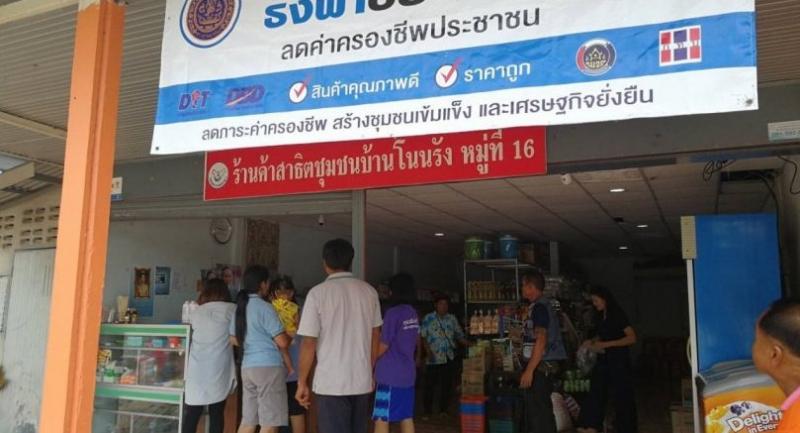Thong Fah welfare smartcard system rife with problems

ALMOST 20 days since low-income earners’ welfare smartcards were activated – enabling them to buy basic food and items at Thong Fah (Blue Flag) Pracha Rat cut-price stores – the programme’s roll-out continues to be rocky.
Many in Khon Kaen had to travel 20 kilometres to use their cards as there was only one store in the area equipped to take the cards.
Ban Noen Rang Co-op Shop in Tambon Sawatthee was the only Thong Fah shop to cater to residents from 80 villages in three sub-districts.
Ban Noen Rang village headman Sawai Kanyayiam said that on the first day of card use, the shop had 500 visitors, and the merchant had to give out queue cards.
Shoppers came as far as 20 kilometres to buy goods, he said, and they were encouraged to spend the entire credit allotted for their cards in one visit to save on travel expenses. So far, the shop has grossed Bt1.3 million since the introduction of the programme, he said.
Among the customers was Tambon Pa Wai Nang resident Banyen Namkhantee who said the Bt300 monthly allowance was small given that she also had to travel a long distance to the |only shop where the cards can be used.
“My village is located far off the main road and residents had to charter a truck to a Thong Fah shop,” she said, adding she spent the whole credit in one go to save on travel expenses. She suggested it would be more convenient if people were given cash to buy commodities at any shop.
In Sa Kaew, an unnamed customer who bought rice grains that turned out to be rotten from the Muang Sa Kaew Agricultural Marketing Co-op store, received an apology and was given three packs of rice and other commodities worth Bt520, according to the co-op manager Nawapol Khomdamdin yesterday.
He claimed that the rotten rice came from a batch that was exposed to rain during transport.
A village grocery shop owner, who asked not to be named, said he originally considered joining the Thong Fah scheme.
But his small shop sold goods that he mostly purchased from wholesalers and as he needed to increase the retail price to make a profit that would not fit the requirements of the scheme.
He also wondered how fast the government would pay the shops participating in the programme. He said some shops might not give customers their small change and some reportedly kept people’s welfare smartcards or allowed customers to trade the card for cash by charging a Bt50 “card-swiping fee”.
Department of Internal Trade director-general Boonyarit Kalayanamit said Thong Fah outlets that took the welfare smartcards or allow cardholders to trade them for cash would be forced out of the scheme and replaced by those on a waiting list.
He also said the department had criteria favouring the selection of shops located in community areas with convenient transport routes to ensure a ratio of one shop per tambon or per 500 or 600 low-income earners.
He said shops that did not make it in the first round of the selection process would be kept on a waiting list.
They could move up to join the scheme if more shops are needed or to replace those leaving the programme.
Boonyarit said his office would make sure participating shops sell good-quality items at normal prices, while selling Thong Fah products for lower-than-market prices set by the department.
The welfare smartcard scheme is meant to help 11.67 million people registered as earning no more than Bt100,000 a year to cope with living costs.
People earning less than Bt30,000 a year will get a Bt300 monthly allowance, while those earning more than Bt30,000 but less than Bt100,000 a year will get a Bt200 monthly allowances.
